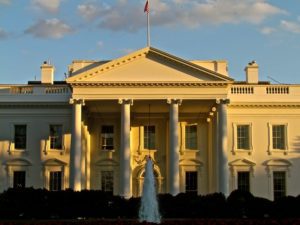Welcome to the latest edition of FindBiometrics AI update. Here’s the latest big news on the shifting landscape of AI and identity technology:

Google, Microsoft, and OpenAI have agreed to abide by AI safeguards put forward by the White House, at least until Congress passes legislation regulating the technology. The agreement includes a handful of provisions, including commitments to invest in cybersecurity, to flag societal risks including bias in AI systems, and to watermark audio and visual content to make it clear when it has been generated by AI. The tech companies signing on to the “voluntary commitment” – which also included smaller AI firms like Anthropic and Inflection – also agreed to allow external audits of new AI models before launching them.
Taiwan Semiconductor Manufacturing Company says it expects a 10 percent drop in its revenues for 2023. TSMC is the world’s biggest contract chipmaker, and a key player in the burgeoning AI industry. In a business update this week, CEO CC Wei noted that his firm is still expecting its AI-related business to grow nearly 50 percent annually over the next few years, but said that AI demand has not been strong enough to offset slumping demand in China, whose economy “is weaker than we thought,” he said.
Nvidia is in talks to invest up to $300 million in Lambda Labs, according to a report from The Information. Based in San Francisco, Lambda’s business primarily revolves around the sale of access to a network of Nvidia GPUs that can be used to train AI algorithms. This includes Nvidia’s scarce H100 processors, each of which features 80 billion transistors. The investment would bring Lambda’s value to about $1 billion on paper.
A new AI model can create a video of someone dancing based on a single photo of that individual, according to a report from New Scientist. The “Disentangled Control for Referring Human Dance Generation in Real World (DisCo)” model is the result of a collaboration between researchers at Singapore’s Nanyang Technological University and Microsoft. It was trained, at least in part, on videos from the video sharing platform TikTok, where elaborate dance videos are regularly posted by users.
Vancouver-based Plurilock has developed a new tool designed to prevent enterprise workers from sharing sensitive information with generative AI tools. While the company is known for its behavioral biometrics technology, its new “PromptGuard” solution is part the company’s Plurilock AI platform. In a statement, the company explained that PromptGuard can operate such that a given user “need not be aware of any anonymization or redaction having taken place”. The solution is being offered through a closed, invitation-only beta program.
OneID has established a partnership with IDVerse that will allow it to integrate the latter’s digital identity verification technologies to its own platform, which relies primarily on partner banks to confirm the identities of its end users, and also supports biometric security. IDVerse, which rebranded from its previous moniker of OCR Labs last month, offers a suite of identity tools including biometric liveness detection and age verification. OneID highlighted IDVerse’s use of generative AI technology to train biometric systems in such a way as to avoid algorithmic bias based on demographics like race, gender, and age.
OpenAI has taken measures to prevent its AI tool, GPT-4, from being used broadly for facial recognition. In addition to performing text-based interactions, GPT-4 can describe images. One participant in a trial of this feature, who is blind, called it an “extraordinary” tool for helping him to understand and interpret the visual world. But he was disappointed to find that the app recently stopped giving him information about people’s faces. OpenAI had changed its facial recognition capabilities so that it will only identify public figures. An OpenAI policy researcher told the New York Times that the company is concerned about privacy violations – including legal liabilities – and about the possibility of GPT-4 misreading an individual’s gender or emotional state.
The European Union has announced a new “Digital Alliance” with several countries in Latin America and the Caribbean. In a “Joint Declaration” announcing the EU-LAC Digital Alliance, it was framed as “an informal, values-based framework for cooperation” that will establish a strategic framework through which “Team Europe” can work with partners on a number of issues including data governance and protection, emerging digital technologies, artificial intelligence, and digital identity.
The chatbot’s take: We asked Bing whether the AI companies that agreed to the White House’s safeguards will actually keep their promises.

–
July 21, 2023 – by Alex Perala








Follow Us